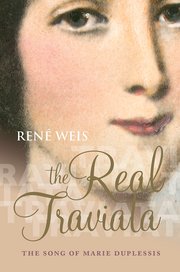04 Nov 2018
The real Traviata. The Song of Marie Duplessis
https://h-france.net/vol18reviews/vol18no52palidda.pdf
https://boydellandbrewer.com/bizet-s-i-carmen-i-uncovered.html
https://boydellandbrewer.com/the-operas-of-sergei-prokofiev.html
https://www.wexfordopera.com/media/news/incoming-artistic-director-rosetta-cucchi-announces-her-2020-programme
https://press.uchicago.edu/ucp/books/book/chicago/M/bo43988096.html
http://www.iupress.indiana.edu/product_info.php?products_id=809636
https://www.cambridge.org/us/academic/subjects/music/twentieth-century-and-contemporary-music/prokofievs-soviet-operas?format=HB
https://boydellandbrewer.com/the-operas-of-benjamin-britten.html
https://www.bloomsbury.com/us/the-opera-singers-acting-toolkit-9781350006454/
https://h-france.net/vol18reviews/vol18no52palidda.pdf
http://www.operatoday.com/content/2018/08/glyndebourne_an.php
A musical challenge to our view of the past
https://vimeo.com/operarara/how-to-rescue-an-opera
https://h-france.net/vol18reviews/vol18no52palidda.pdf
 Weis’s book constitutes the latest and most comprehensive outcome of the interest already surrounding the figure of Marie Duplessis for quite a number of years. As the title suggests, Marie (or, better, Alphonsine) embodies the rather rare case of a real-life character inspiring not only a major writer’s work, but also what the author himself considers “probably the best loved opera in the world” (p. 1). In the case of an operatic work that has almost completely displaced its literary sources, the interest towards the real “fallen woman” has already produced quite significant fruits, both in English and, most notably, in French.
Weis’s book constitutes the latest and most comprehensive outcome of the interest already surrounding the figure of Marie Duplessis for quite a number of years. As the title suggests, Marie (or, better, Alphonsine) embodies the rather rare case of a real-life character inspiring not only a major writer’s work, but also what the author himself considers “probably the best loved opera in the world” (p. 1). In the case of an operatic work that has almost completely displaced its literary sources, the interest towards the real “fallen woman” has already produced quite significant fruits, both in English and, most notably, in French.